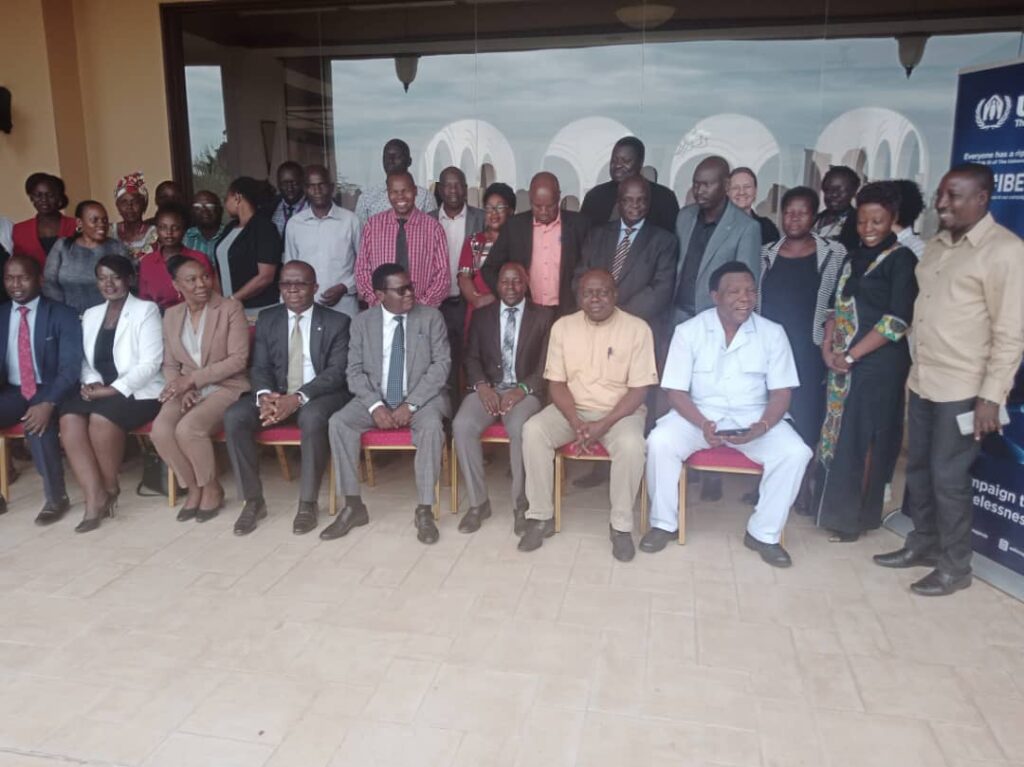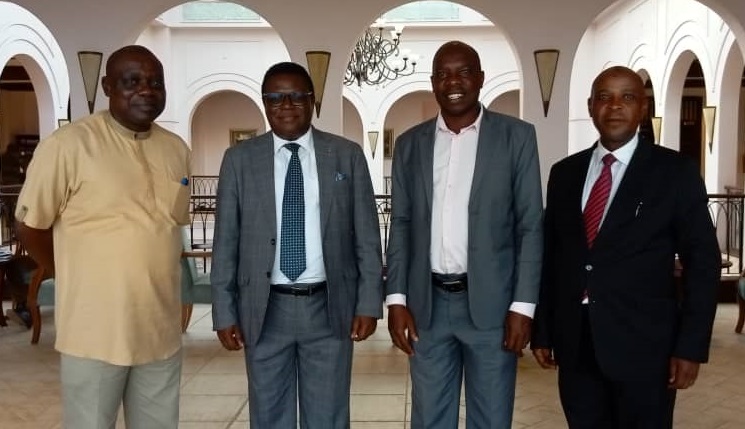KAMPALA (UG): A total of five communities that were not recognized in the 1995 Uganda Constitution are likely to receive a sigh of relief if the current push for a constitutional amendment is successful.
Yesterday the UNHCR convened a meeting to discuss the matter in a bid to curb statelessness in the country. Stakeholders behind the proposed amendment include the Kibanda South MP Karubanga Jacob Ateenyi, Justice and Constitutional Affairs minister, Hon. Norbert Mao, representatives from UNHCR and representatives from the stateless communities.
The relevancy of the Conference cannot be overstated as it comes at such a time when NIRA is soon commencing mass registration of citizens of Uganda for issuance and updating of National Identity Cards as well as the national population census which is due any time soon.
It also comes at a time when the country is supposed to fulfil commitment at local, regional and global conventions to end statelessness. It also comes at a time when all service delivery in the country and beyond require national identification cards and or travel documents which these stateless communities do not have.
“For a long time, the stateless people of Uganda have not been adequately heard and seen since they have been kept in the shadows of the societies they live in. Most people have even denied their very existence while others have used derogatory words to refer to us for example the Bacope and Benet”, Karubanga said.
He further stated that the settlement of these indigenous communities wherever they are in this country Uganda started way back where communities lived harmoniously with other neighbouring communities and engaged and practised cultures and customs without any interference.
“When the colonialists came, they began an injustice that has continued to date. First, the colonialists decided to exclude some particular communities from participating in the economic and social life of the communities where they lived and in other instances, preferred to work with the bigger or collaborator communities around.
The Colonialists also demarcated boundaries which either moved some communities into or outside Uganda; hence dividing our people, amongst the countries they created out of our communities. The colonialists further evicted us from our ancestral lands and created national parks. The Mosopisyek, the Bakingwe and Bagabu felt the brunt of this unfair policy when they were evicted by the British Colonial government from their ancestral lands following the creation of Mt. Elgon and Queen Elizabeth National Park, respectively.
“During this eviction, they were never compensated and from that time till the present day, they are destitute, having no land and have been displaced”, Karubanga stated.

In his push for the inclusion of stateless communities, The Kibanda South MP also stated that when the colonial Government left and the modern state of Uganda was created, the subsequent Constitutions did not recognize some indigenous communities’ existence.
He says these were relegated to the fringes of society, denied travel and identity documents, employment opportunities and were not considered Ugandans since are not listed as part of the ingenious communities of Uganda.
“We had faith in the 1995 Constitution but our hopes were dashed when only 56 indigenous communities were listed. The Odoki Report had listed only 39 Tribes of Uganda but as the constitution-making process took root in the Constituent Assembly, the number grew to 56 through the addition of other tribes, especially, those that had representation in Parliament. In 2005, an amendment was made to the third schedule to the Constitution and 9 additional indigenous communities were added onto the list of indigenous communities, bringing the number to 65”, Karubanga said.
He also argued that they immediately began a campaign to get recognized as indigenous communities in Uganda in order to be fully recognised as citizens of Uganda by birth. “They organized themselves into community groups to advocate for their recognition.”
The Maragoli for instance made a complaint to the Equal Opportunities Commission, Uganda Human Rights Commission, Ministry of Justice, Parliament of Uganda and the President to allow them to be recognised under the Constitution as an indigenous community.
Following the complaint to the President, the President directed the Attorney General, by a letter addressed to the Speaker of Parliament, dated 30th July 2017, to include the Bahaya and the Maragoli in the Constitution of Uganda. However, this was not done.
In the 10th Parliament, the House granted leave to then Member of Parliament for Kibanda South, Hon. Jack Odur to introduce the Constitution (Amendment) Bill that sought to include the Maragoli people among Uganda’s indigenous communities. The Bill, however, lapsed with the dissolution of the 10th Parliament.
“On 11th November, 2022, Parliament granted me, leave to introduce a private Member’s Bill entitled “The Constitution (Amendment) Bill”. The Bill seeks to amend the Third Schedule to the Constitution of the Republic of Uganda, 1995 to recognize the Bakingwe, Bahaya, Maragoli and Mososhek among others as indigenous communities in Uganda as of 1st February 1926; and to refer to the “Chope” indigenous community by its traditional name, “Pa’ luo”. This Bill was stood over for further consultation hence this engagement”, Karubanga further stated.
He also clarified that in the meantime, working with the Department of Legislative and Procedural Services of the Parliament of Uganda, with funding from the Clerk to Parliament and the Speaker of the Parliament of Uganda, they are undertaking Pre-Legislative study across Uganda to establish and ascertain the actual existence, origin and indigenous nature of other tribes of Uganda that were not recognised in the Constitution.
“We visited the Saboat, Maragoli, Bahaya/Baziba, Bakingwe and Bagabu people in Uganda.
The study employed an exploratory research design; a concurrent mixed-method was used and the study was predominately qualitative. This enabled the team to clearly understand the issues that may require amendments.”
The study was conducted in the districts of Kapchorwa, Kween, Bukwo, Namisindwa, Kyotera, Kasese, and Kiyandongo where the minority communities in issue are predominately settled. The study covered the following categories of respondents; District and local government leaders and officials in the host districts, Traditional leaders and relevant persons in traditional institutions in the host districts.
“The Speaker and the Clerk to Parliament also organised and facilitated our team to undertake benchmarking studies in Kenya and Tanzania on how the stateless communities were recognised in the laws of those countries. In Kenya, we found two minority Communities that were recognised after a long struggle. These were the Makonde people who were recognised in 2016 and the Kenyans of Asian origin who were recognised in 2017. In Tanzania, we found a number of ethnic groups which were not recognised as indigenous communities and were referred to as “Dorobo” (or Ndorobo, Wadorobo, Dorobo, Torobo), a derogatory term derives from the Maa expression il-tóróbò (singular ol-torróbònì) ‘hunters; the ones without cattle,” Karubanga submitted during the engagement.
In commitment, Hon. Mao acknowledged his support for the constitutional amendment bill and promised to convene a meeting with the Attorney General over the same.
If you would like your article/opinion to be published on Uganda’s most authoritative news platform, send your submission on: [email protected]. You can also follow DailyExpress on WhatsApp and on Twitter (X) for realtime updates.



